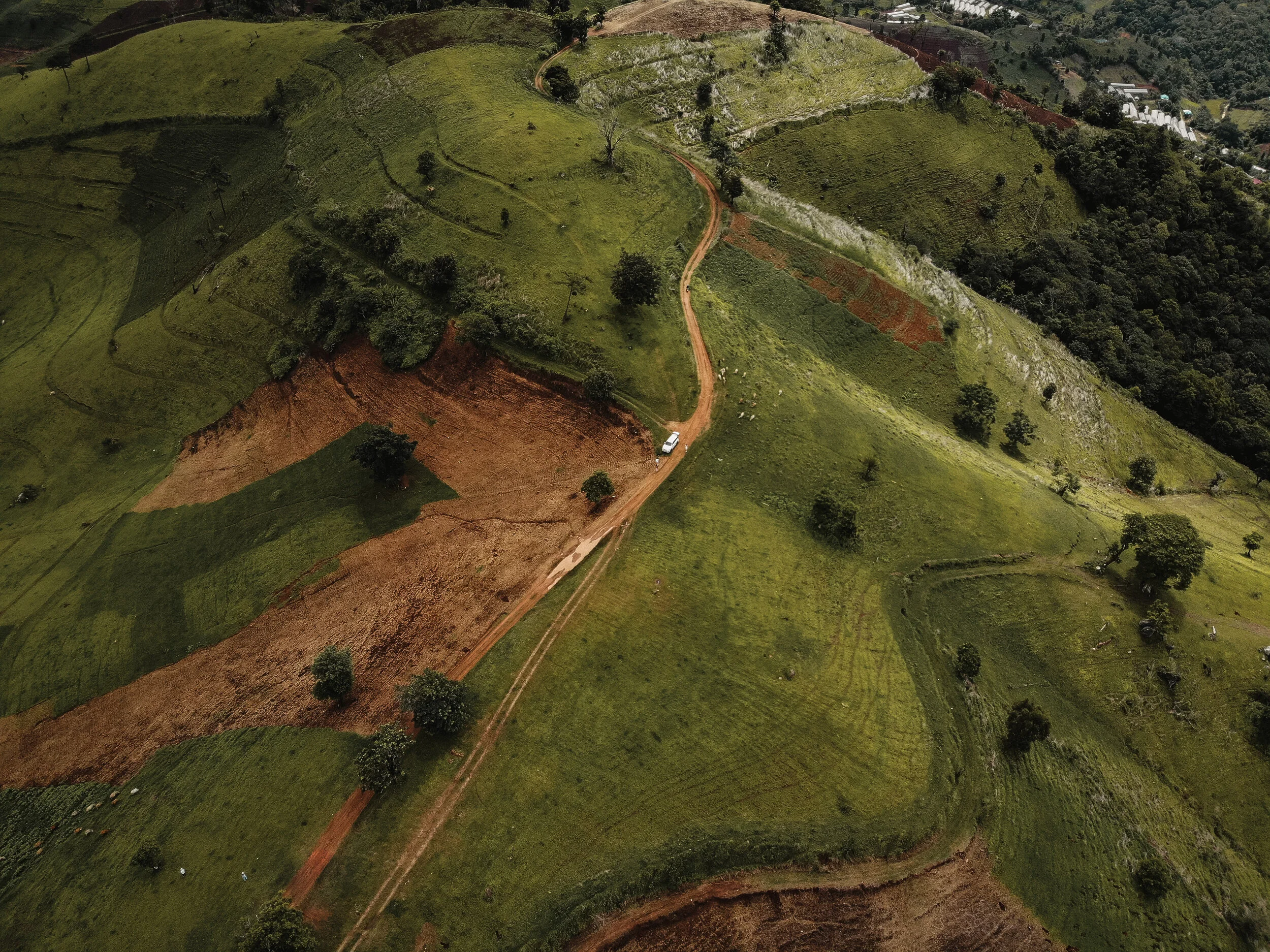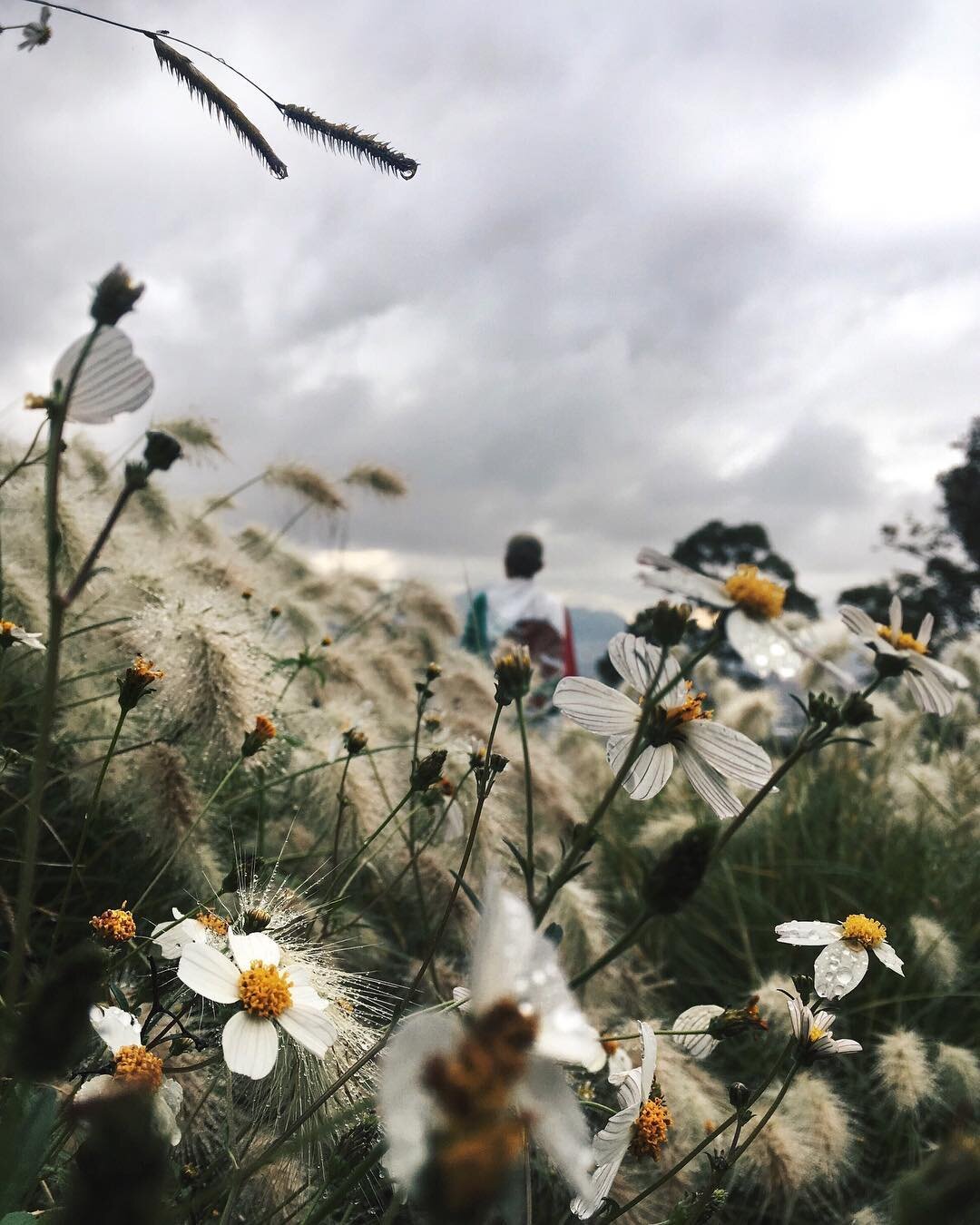Unravelled in the Vineyard

Unravelled in the Vineyard
Ilana Reimer
A friend and I instated soup potlucks every Wednesday at the vineyard. Lunch was the most exciting part of our day, especially as the cold made our fingers clumsier and the ground harder beneath our protesting knees. We gathered around a folding table in the work shed that doubled as a staffroom, ladling soup and laughing. Someone shared their homemade bread. We made grilled cheeses on an old panini press that was stashed among pruning sheers and work gloves. Two plastic figurines—one of Jesus, the other of Wonder Woman—stared benevolently down from a rickety shelf.
I’d applied to this job on a whim. Restless from working at home and wanting to supplement my freelance income, I started working at a local vineyard. In this environment, where my “office” was a field and where my co-workers were exuberant about bees, trees, and ecosystems, something tugged at my previous ideas about what it meant to do meaningful work. My identity unravelled itself from its trappings and slipped free.
The Writer’s Title
I have always clung to the title of a writer. The name carried with it a sense of purpose I felt lost without. I thought, naively, that my existence would be justified if I could string together enough good, beautiful words. The God of my imagination dwelt solely in intellectual realms, and I glossed over the truth nature tells. “Look at the birds of the air; they do not sow or reap or store away in barns, and yet your heavenly Father feeds them,” Jesus said in Matthew 6:26. Working at a vineyard helped me realize we are loved for existing, not achieving, and drew me into a faith that encompasses both mud and mind.
Growing up in a semi-rural neighborhood near a small town meant knowledge of the land was an option, not a necessity, for survival. I never considered the connections between what God had already created and His divine restoration, which is described with the language of gardens and harvests. For centuries, artists and poets have recognized these wordless monuments as vehicles for the Creator’s communication. We hang on to these monuments all the more now, in our increasingly developed world. In Meadowland: The Private Life of an English Field, John Lewis-Stempel wrote, “To stand alone in a field in England and listen to the morning chorus of birds is to remember why life is precious.” This spring, I found these reminders in every unfurling leaf—a strange dichotomy against the backdrop of a worldwide pandemic.
But despite my appreciation for the aesthetics of the natural world, my interest went no further. When my parents planted a vegetable garden many years ago, I enjoyed poking holes in the dirt and placing seeds inside. However, I became disenchanted when various animals began feasting on our hard labour. Our crop was dismal, and I considered the whole enterprise a waste of time. I applied this to writing as well, thinking everything I produced had to be meaningful in some way. If it didn’t have a measurable effect or value, then it was useless. Western culture has conditioned us to seek results for the work we do, and the faster we see these results, the better. Not only that, but we so often use our work as definitions for who we are.
Challenging Perceptions
The cross-section of people I met at the vineyard challenged this perception. I’ve worked with musicians, gymnasts, environmentalists, high-school teachers, English majors, bee-keepers, retired lawyers, and chefs. But these resumés became irrelevant when everyone was covered in the same mud from a rainy day, or sharing in the same urgency to finish harvest before the cold hit. The diversity of backgrounds and interests caused dynamic conversations, but they weren’t at the forefront of our identities.
Cristian Galicia
Severing work from self comes with a startling sense of release. Though it hasn’t been an easy process for me, I found it helpful to have a job that was unrelated to my definition of self. I didn’t stop writing, but I did loosen my grip on the moniker of a writer. Having a holistic view of my life gave me the freedom to pursue peaceful balances instead of seeking to support my ego or think about how I might look to others. I found splitting my time between physical and mental work gave me more energy and creativity. Perhaps my craft grew slower since I had less time to practice. Perhaps my bank account remained lean. But my soul was lighter without the weight of my expectations. This, I’ve learned, matters more.
Simple work does not always mean avoiding a greater calling. Often it is the practical, painstaking transformations within nature that give us the clearest windows into how God works. Jesus told his followers in John 15:1, “I am the true vine, and my Father is the gardener.” Having tended grapevines, I know their neediness. They need to be trained to wires that support their weight and lift the grapes off the ground. Old or spindly vines need to be pruned away. Then, the healthy ones become more fruitful because the useless ones aren’t sapping any energy. When Christ compared humans to vines, he knew we also take nurturing and pruning from an outside source so we can thrive.
Nature is Never Spent
Perhaps this is why our Creator wants us to interact with Him not only through intellectual thought, but also through dirt, grass, and stone. Genesis speaks of both the glory of creation as God first made it and the bitter results of human evil. Scripture is shot through with His deep affection for the physical earth; the narrative is a constant tug back to Eden. In “God’s Grandeur,” Gerard Manley Hopkins, a poet known for connecting creation with the divine, counteracts the effects of human exploitation with God’s inexhaustible tenderness. “And all is seared with trade; bleared, smeared with toil; / And wears man’s smudge and shares man’s smell: the soil / Is bare now, nor can foot feel, being shod. / And for all this, nature is never spent.”
To look at nature is to observe both decay and delight. The magic of plump grapes turning translucent and rosy in the sun is often overshadowed by rocky soil, weeds, and pests. The process from springtime to harvest provides one reminder after another that we’re fighting a cursed version of nature. It taunts us with extraordinary splendour, then shrivels new buds in a sudden frost. It’s as William Wordsworth wrote in ‘Ode: Intimations of Immortality,’ “Waters on a starry night / Are beautiful and fair; / The sunshine is a glorious birth; / But yet I know, where’er I go, / That there hath pass’d away a glory from the earth.”
Amid many uncertainties, there is reassuring predictability in the habits of plants and wildlife obeying the same patterns year after year. We hunt for unmarred landscapes, eager to escape from pollution and industry. These longings “are only the scent of a flower we have not found, the echo of a tune we have not heard,” according to C.S. Lewis in The Weight of Glory. As I listen to the songs I can hear—the buzzing bumblebees, thighs fat with pollen, or the trumpeting geese, flying so low I can hear their wings beating—I find it easier to catch these unheard melodies.
Each vineyard season felt like a metaphor for the times in life where we beat the odds and create spaces of beauty and unity despite the chaotic evil of our world. Gathering around a harvest feast with fellow labourers made the garden of God’s eternity no longer seem like a disembodied, unfamiliar place. We are all dreamers and doers of various kinds. Yet our dreaming and doing reside within ordinary days and a lot of figurative or literal weeding. However worthless or unending these tasks may seem, we have permission, like vine branches, to grow slowly, unsteadily, and in much need of care. The natural world is whispering its unheard melody, inviting us to leave our resumés behind for a while and take sweet refuge in existing.
Ilana Reimer
Writer & Journalist
Ilana Reimer is a writer and editor living in Ottawa.
Photography by Piyatat Primtongtrakul
